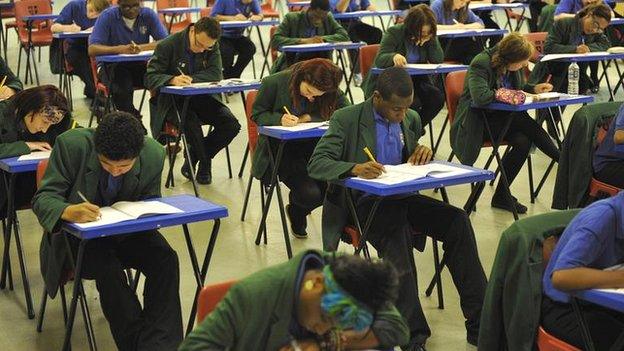Cameron's £15,000 for maths and science teachers
- Published
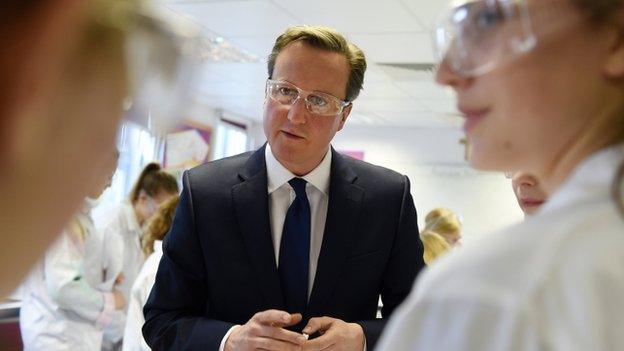
David Cameron will announce plans to find more science and maths teachers
David Cameron is to announce a £15,000 university bursary for teenagers with good A-level maths and science grades, if they commit to enter teaching.
This "golden hello" for teenagers is an attempt to recruit more maths and physics teachers for England's schools.
The prime minister says he wants this country to be the "best place in the world to learn maths and science".
Labour's Tristram Hunt says the government has "failed its own targets" on recruiting specialist teachers.
Brian Lightman, leader of the ASCL head teachers' union, said schools faced "serious shortages" in maths and science teachers and called for a more co-ordinated approach to teacher recruitment.
Science jobs
The £15,000 offer to help would-be teachers taking maths and physics courses would be in addition to incentives of up to £25,000 to attract high-flying graduates into teacher training for maths, physics, chemistry and computing.
It means that an individual student could receive incentives of £40,000 to become a maths teacher - a reflection of the pressure to find sufficient specialist teachers and the competition from other employers for sought-after graduates.
Mr Cameron will say that the recruitment drive for more maths and science teachers is part of a long-term economic plan to ensure there are enough skilled staff for science-based jobs in the future.
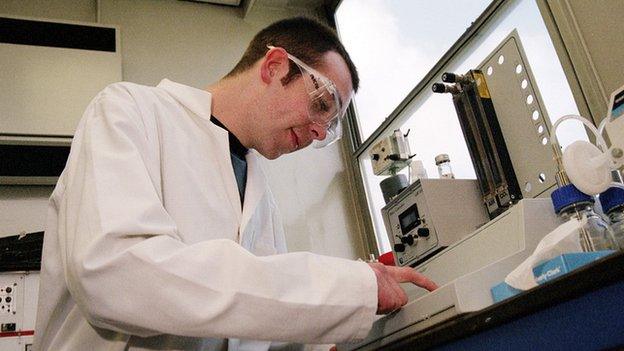
Science students will be helped with university costs if they commit to three years teaching
"I come at this as a parent, not just a politician. A great education system won't just help our country succeed in the future; it will give families peace of mind that their kids can realise their full potential," the prime minister will say.
"That doesn't just mean building more good school places; it means teaching children what they need to know to make something of themselves."
He will provide more details of a £67m teacher recruitment drive announced last year, which will include 15,000 existing teachers being re-trained to be specialists in maths and science.
There will be plans to "fast-track" more people into teaching maths and science, including former teachers and those wanting to change careers.
A new approach will be to attract potential recruits at a younger age.
These will begin with pilot projects, with a so far unspecified number of places, which will see incentives for young people to sign up for teaching before going to university.
The £15,000 over three years for potential teachers would help with living costs and would be repayable if students did not go on to teach for three years after graduating.
Head teachers' leader Mr Lightman says it raises questions about how to make sure that these young candidates were going to be suitable for teaching.
Running the recruitment scheme is expected to be put out to tender.
Combined course
There will also be university courses piloted which will combine a physics degree with a teaching qualification, so that graduates could go directly into teaching without an additional year of postgraduate teacher training.
Mr Lightman said that the push for more maths and physics teachers was welcome, but "far more fundamental reforms are needed to address a crisis in teacher recruitment".
There were shortages emerging in subjects other than maths and science, he warned.
The National Union of Teachers' leader Christine Blower said that the government should admit that its "strategy for teacher training is failing" and not to rely on a "piecemeal approach" of individual incentives for different subjects.
Labour's shadow education secretary Tristram Hunt said: "The best way to improve maths and physics teaching is with highly skilled and qualified teachers, but David Cameron has changed the rules to allow unqualified teachers in schools."
- Published8 December 2014
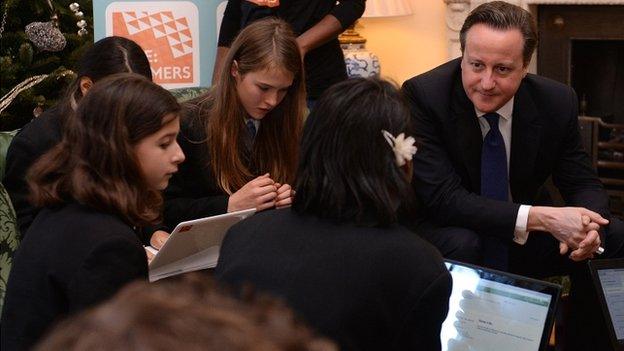
- Published5 March 2015
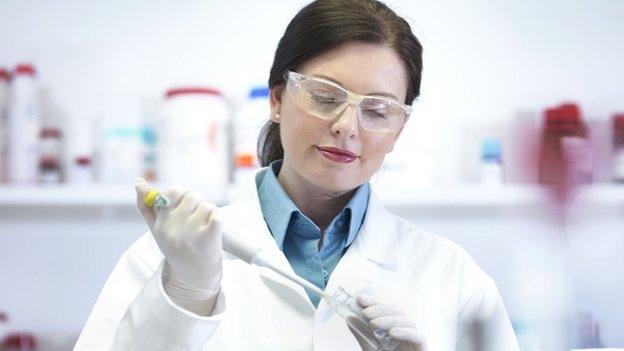
- Published11 February 2015
